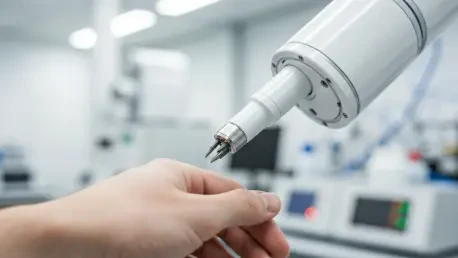
The prospect of large, pilotless aircraft navigating the skies to deliver cargo is rapidly moving from science fiction to an operational objective, but this futuristic vision hinges on solving one of aviation’s most complex challenges: safely integrating autonomous systems into the bustling,

Oscar Vail is a technology expert whose work sits at the fascinating intersection of developmental psychology and robotics. He and his team are pioneering a new "meta-learning framework" designed to teach robots how to physically interact with the world not by programming them with rigid

In robotics, we’ve made incredible strides with vision; machines can see and navigate the world with impressive skill. But the sense of touch, the very first way we experience our own world, remains a profound challenge. My work in soft robotics is dedicated to bridging this gap, exploring how we

In a move poised to reshape the European deep tech landscape, Generative Bionics has successfully closed a landmark €70 million funding round, marking one of the most substantial investments in the continent's burgeoning humanoid robotics sector. The Italian company, a spin-off from the renowned

The enduring vision of replacing a lost limb with a seamlessly integrated bionic extension has often been overshadowed by the cumbersome reality of controlling these advanced devices, creating a significant gap between technological promise and user experience. AI-powered prosthetics represent a

Creating robots that can match the fluid dexterity and effortless grace of the human hand has long been one of the most formidable challenges in engineering, a goal that has often seemed just beyond the reach of conventional programming and imitation-based learning. Synergy-Based Robot Learning